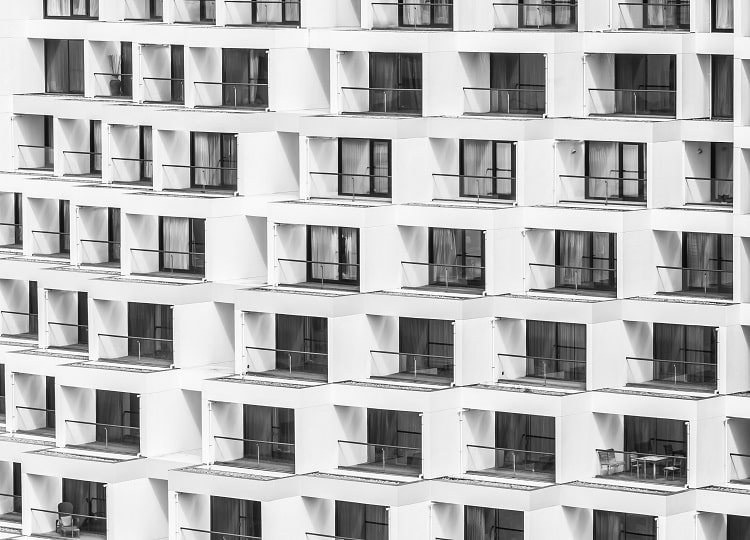 Windows building textures background - black and white processing style
Windows building textures background - black and white processing style
Property leasing: alternatives and tax implications
With the entry into force on 26 May 2023 of Law 12/2023, of 24 May, on the right to housing, and as we commented in our blog just before its approval, the rental housing market is in one of its most convulsive moments, which may put the activity of landlords at risk due to excessive regulation and guarantees for tenants, and a market in which there is an attempt to intervene in prices.
The government is currently considering further regulation of the different types of contracts, with an emphasis on greater control of those known as seasonal, tourist, short-stay, room-based, student, etc. …. with the aim of trying to increase the number of properties available for rental housing as such, as the lack of supply continues to push up prices.
For tax purposes, in the area of personal income tax, in previous years a reduction of 60% of the net yield of renting for residential use has been applied as a general rule.
Tax innovations in the Housing Act
However, as of the entry into force of the new law, for contracts entered into after its entry into force, this percentage reduction is 50% in general, although it can be as much as 90% if the rent is reduced for tenants in a stressed area by more than 5%.
Faced with this situation, investors who already have a certain economic capacity are diverting part of their investments in real estate profitability also towards other types of assets, such as commercial premises, office buildings, retail operators, etc. …. where the legal certainty of contractual relations and regulation has a more businesslike, more stable and less burdensome approach for owners.
In this sense, before embarking on an investment and rental property operation project, it is essential to analyse the different legal and tax options or alternatives, looking at those that are most optimal according to the type of activity to be carried out.
For low volume property rental as a private investor, it can still be interesting to do it as a natural person and take advantage of the existing reductions.
However, if the volume is already very high or if it is for rentals other than housing, such as tourist, seasonal or other types, the possibility of making these investments and operating them through a company may be considered, as the progressive tax rate in personal income tax can be very high.
A flat corporate income tax rate of 25% is applicable, from 2023 23% for companies with a turnover of less than EUR 1 million, and there are also some alternatives that can improve taxation.
Special tax regime for the rental of dwellings for companies whose main economic activity is the rental of dwellings
This is a tax regime whose application requires an express and formal application to the Tax Agency, aimed at companies whose main economic activity is the rental of dwellings located in Spanish territory, which they have built, promoted or acquired (article 48 of the LIS):
They must carry out an economic activity as such, which in the case of property rental requires a full-time employee with a contract of employment.
-Must have a number of dwellings leased or offered for lease of at least 8 (or more) at all times during the tax period.
-The dwellings must remain rented or offered for rent for at least 3 years.
-Each dwelling must have separate accounts, in order to determine the rent for each property individually.
-If other related activities are carried out (development, sales), the main economic activity must always be the rental of housing, accounting for at least 55% of the income for the tax period, or alternatively, at least 55% of the value of the entity’s assets must be capable of generating income in order to qualify for the allowances.
From 1 January 2022, the allowance applicable to income derived from rental activity is 40%, which for a company taxed at 25%, means an effective rate for this income of 15% (saving of 10%).
Previously the rebate was 85%, which meant an effective rate of 3.75%, so the incentive has decreased significantly, but there is still a saving.
In addition, these entities can enjoy a super-reduced VAT rate of 4% on the purchase of homes used for this activity, instead of the usual 10% on the purchase of this type of property. This has a direct positive financial impact, since as they are normally on a VAT pro-rata basis and cannot deduct input VAT (remember that rental housing is exempt from VAT), there is an additional saving of 6% in this way.
One of the problems with this regime since the rebate was reduced in 2022 is that if such entities distribute dividends to a parent or holding company on which they depend, they can only apply the double taxation exemption (currently 95%) to 50% of this income, which makes this regime less attractive if recurring dividend distributions are envisaged, rather than reinvestment.
In the case of individual shareholders, the dividend received by them must be included 100% in their personal income tax, as savings income, as with any other company.
Do you need advice? Access our areas related to the alternatives and tax implications of property leasing:
